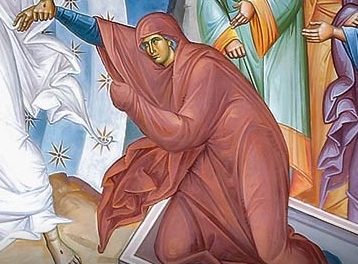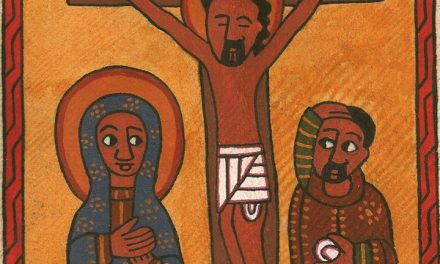Gn 2:7-9; 3:1-7
Ps 51:3-4, 5-6, 12-13, 14 and 17
Rom 5:12-19
Mt 4:1-11
I began last weekend with all sorts of hope and plans. I was going to do a family movie night, then run errands on Saturday, sleep in a tiny bit on Sunday morning since my catechesis class that I normally teach was cancelled due to President’s Day Weekend, then go to mass and go out to eat with my family for an early Mardi Gras celebration.
What actually happened is that I came down with the latest illness. I was stuck in bed all weekend and it was one of those things where I had no energy for anything other than sleeping and trying to get sips of water to stay hydrated. By midday Monday, I was feeling more or less back to normal, but very cross that my weekend hadn’t gone according to plan – especially the good parts.
This week’s Gospel tells a similar “not according to plan” kind of story. Today’s Gospel reading begins with Jesus, just after his baptism in the Jordan River, when a voice from the heavens proclaims, “This is my Son in whom I am well-pleased.” Jesus, of course, does not stop to bask in the glory but instead runs to the desert where he fasts and prays for 40 days and 40 nights.
We who are hearing this scripture are meant to tie Jesus’ fasting in the desert to other significant stories about the desert – especially that time when the Israelites escaped from slavery in Egypt and spent 40 years wandering in the desert. That’s especially underscored by the fact that Jesus quotes from Deuteronomy, chapter 8, which gives a pretty succinct account of life in the desert.
The Israelites’ sojourn in the desert includes multiple miraculous encounters with God (observing brackish water turn into fresh, finding manna from heaven, receiving the Ten Words/Commandments from God), not to mention that at the end of the journey, they finally, finally, at last, cross the Jordan River and enter the Promised Land. We learn from that story that God is with us, God acts on our behalf.
By contrast, while Jesus’ story begins similarly to that of the Israelites, Jesus’ time in the desert does not go according to that Deuteronomy plan. He’s been named God’s Beloved Son, but contrary to popular belief, that does not mean special favors. At all. In Jesus’ story we learn a very different facet of how God is still with us.
Jesus emerges from the desert, hungry after his fasting, and the devil tempts him to use God’s power (for after all he’s the Beloved!) to turn stones into bread, so that at least Jesus can eat! But no – Jesus quotes from Deuteronomy 8: “One does not live on bread alone, but on every word that comes forth
from the mouth of God.”
The devil, perhaps a bit disappointed, thinks, “Okay if that’s how you’re going to play it, then let’s test whether God really thinks you’re his Beloved Son.” They go to the top of the temple, the place of God’s inner sanctum, where the devil asks Jesus to throw himself off the roof. The devil even throws in a bit of scripture there, to make his command sound all the holier. But Jesus sees through this: The Son of God “shall not put the Lord, your God, to the test.”
Okay, the devil thinks: “He won’t do anything for himself (the bread); he won’t let God save him. Maybe being the Beloved Son is just a special title that will involve simply inheriting all the wealth of the earth. In fact, maybe he will worship me.” So they go to the top of a mountain, where they imagine the world and all its riches, and the devil asks for worship. But at this third temptation, Jesus says, “Get away Satan! It is written: The Lord, your God, shall you worship and him alone shall you serve.“
At the end of the whole episode, there is Jesus, still hungry. He does not get the manna, he does not get the Ten holy Words of God, nor the Ark of the Covenant, he does not make it into the Promised Land. He receives none of the blessings that the Israelites did at the end of their desert wanderings. Jesus will not force God’s hand, any more than the Israelites forced God’s hand. Instead, we have the first taste of the Cross, the first taste of what it will mean to be God’s only begotten Son dying on that cross.
Part of the point is: wandering through the desert for God – whether that is for forty years or forty days – may lead to some surprises. Lent is not a season that goes according to plan.
It might mean manna from heaven but it might also sharpen hunger. It might lead more closely to the Ten Commandments and to seeing God, or it might not. Maybe there will be no desert epiphanies. Maybe all we learn at the end of Lent is that we have traversed the desert and found our own crosses to bear.
As we begin our own desert journeys this Lent, may we take care in the desert, beware temptation, and go where God leads – even if that seems not to have been part of our (human) plans.





